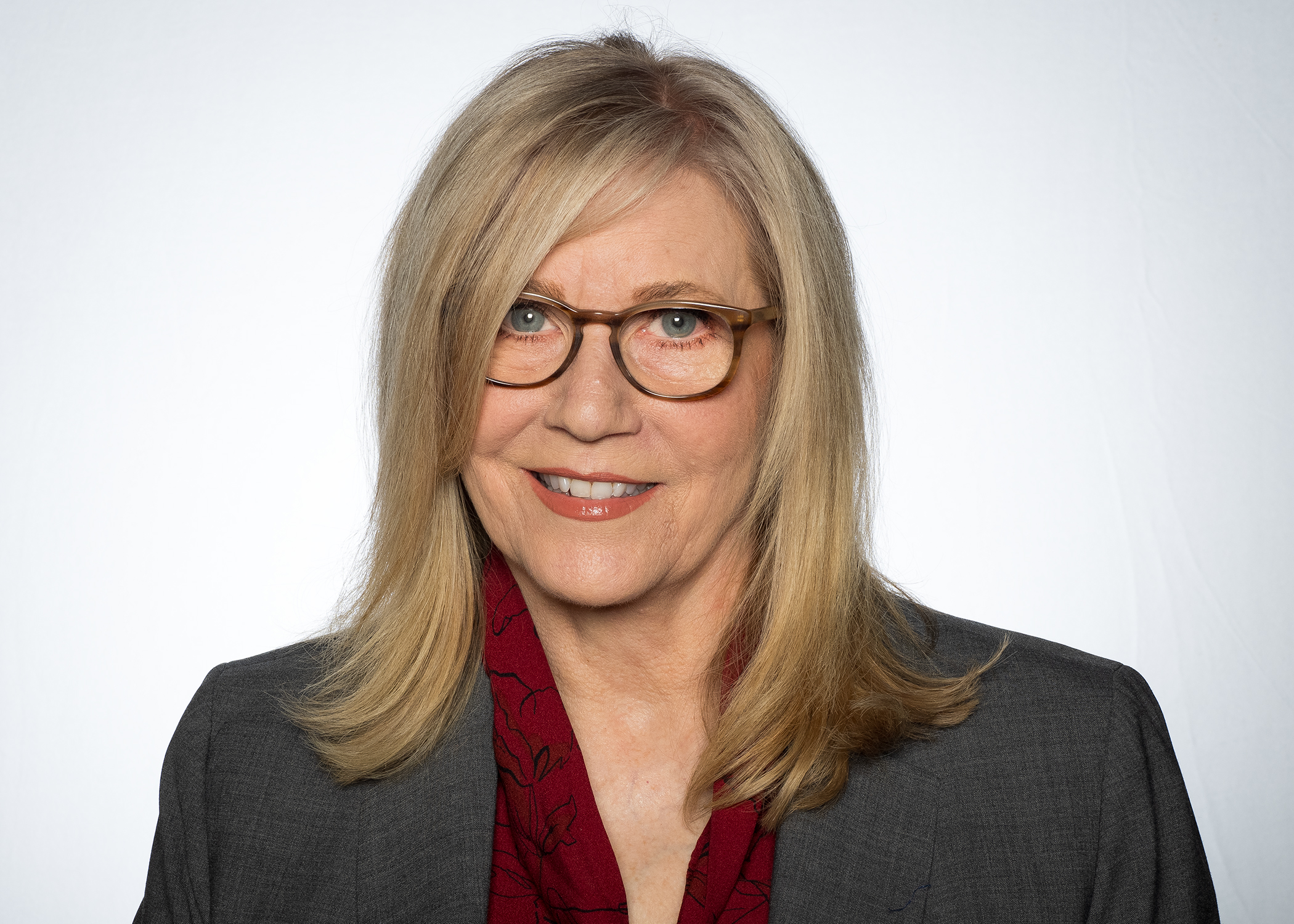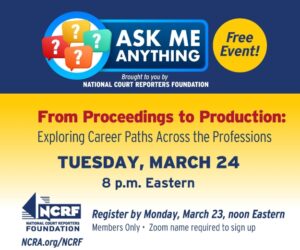By Lynette Mueller
At some point in every court reporter’s career, the question arises: Should I keep working, or is it time to retire? For many in our field, retirement doesn’t mean shutting down the steno machine for good. In fact, there’s growing evidence (and plenty of lived experience) that continuing to work beyond the traditional retirement age can be deeply beneficial, both personally and professionally.
Whether you’re still going strong or reconsidering your workload, here’s why staying in the game might be the best move you make.
Financial sense meets common sense
One of the clearest benefits of continuing to work, even part-time, is the financial stability it can provide. Every extra year of income gives your retirement accounts more time to grow and delays the need to draw from Social Security. That breathing room can make a big difference. For some reporters, it’s about bridging the gap until Medicare begins. For others, it’s about having the freedom to travel, support hobbies, or help out with a grandchild’s college fund. Ultimately, it’s about maintaining choice, and that’s something incredibly valuable in this next chapter.
Brain health and well-being
According to Harvard Health and AARP, staying mentally and socially engaged has significant health benefits. Continuing to work, especially in a mentally demanding job like court reporting, can help reduce the risk of dementia and cognitive decline. Our profession keeps us sharp, alert, and engaged. Plus, the social aspect of working — whether it’s with attorneys, colleagues, or clients — can combat isolation, which becomes more common with age.
Physical health benefits aren’t off the table either. People who work part-time or stay active with side gigs report fewer instances of high blood pressure, stroke, and other chronic conditions. It turns out that a little work may be the best wellness plan around!
This profession isn’t just what we do; it’s who we’ve become. And that part of us doesn’t have to retire.
Purpose and fulfillment don’t retire
Many of us aren’t just doing this job for the paycheck. We find purpose in our work: We’re guardians of the record, protectors of accuracy, and professionals with decades of expertise under our belts. Retiring doesn’t suddenly erase that. The dedication we’ve poured into our careers doesn’t just disappear the day we decide to scale back. In fact, for many seasoned reporters, stepping away from full-time work opens the door to something just as meaningful, if not more so.
I’ve spoken with colleagues who thought they were ready to retire only to discover they still had more to give but on their terms. Some found renewed fulfillment by mentoring new reporters, helping shape the future of our profession one phone call or practice session at a time. Others shifted into scoping or proofreading, roles that keep their skills sharp and their schedules flexible. Volunteering for state or national association committees, serving on boards, and offering input on policies and standards are also powerful ways to stay engaged and make a difference.
Remote work has made it easier than ever to stay involved without the travel or physical demands. Reporting from a home office — whether it’s one job a week or one a month — still makes an impact. There’s a sweet meets flexibility where you can still contribute meaningfully without the stress of a full-time grind.
This profession isn’t just what we do; it’s who we’ve become. And that part of us doesn’t have to retire.
Redefining retirement: remote work and new roles
Retirement no longer has to mean closing the door on your professional identity. For many experienced court reporters, it’s more about redefining what work looks like in this next chapter. If you’re ready to slow down without stepping away entirely, consider easing into semi-retirement through more remote depositions or by stepping into a mentorship, consultant, or proofreader role. Much like the “Of Counsel” positions often seen in the legal field, these roles allow seasoned reporters to stay connected, share their expertise, and contribute meaningfully without the demands of a full-time caseload. Earning an additional state license (other than your state of residence) can expand your opportunities for remote proceedings while also helping to address coverage gaps in regions experiencing a shortage of qualified reporters.
Thanks to the widespread adoption of remote technology, flexibility has never been greater. With tools like Zoom, cloud-based repositories, realtime streaming, and secure VPNs, you can participate in proceedings or support your colleagues from the comfort of your home office, coffee in hand, foot pedal at your feet, and deadlines on your own terms. Whether you’re looking to maintain your skills, explore a new side of the profession, or simply stay engaged on your own schedule, this is your opportunity to craft a version of retirement that works for you. The key is defining what balance means in this season and permitting yourself to embrace it.
Retirement no longer has to mean closing the door on your professional identity. For many experienced court reporters, it’s more about redefining what work looks like in this next chapter.
Know the risks, but focus on the rewards
There’s no denying that working longer comes with its own set of challenges. The wrong assignment can leave you feeling stressed or physically drained. But the good news is flexibility is your superpower at this stage in your career. If something isn’t working, permit yourself to pivot. Choose work that energizes you, not work that depletes you. Before making any big decisions, it’s wise to talk things through with your doctor, your family, and your financial advisor. And if you ultimately decide to step away from reporting altogether? That’s perfectly okay. Staying active can take many forms, whether it’s volunteering, exploring new hobbies, focusing on your health, traveling, or simply spending time with friends. The key is doing what feels right for you in this next chapter.
Final thoughts: legacy and leadership
We’re not just living longer; we’re showing up wiser. In court reporting, experience isn’t something to phase out; it’s something to lean into. This profession has always prized precision, stamina, and judgment. Those qualities don’t fade with time; they deepen.
So if you still have the skill and the heart for it, there’s no reason to step aside. Whether you’re still behind the machine, mentoring students and new professionals, or finding a rhythm that fits this new chapter of life, your presence still matters.
This isn’t about pushing past your limits. It’s about expanding your impact and maybe even finding more joy and purpose in the work than ever before.
To learn about some tools to help you work smarter and not harder, and to read the full text of this article, NCRA members can use their membership credentials to log in to the September 2025 issue of the online JCR Magazine.
Lynette Mueller, FAPR, RDR, CRR, is a freelance court reporter based in Memphis, Tenn., and a member of the NCRA Board of Directors. She can be reached at lynette@omegareporting.com.




